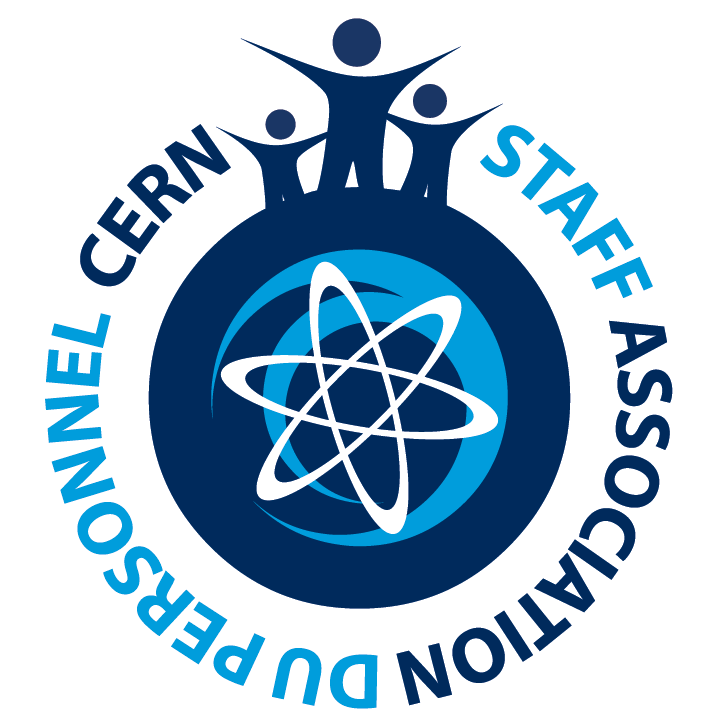Second SCC meeting of the year 2023

![]()
As we mentioned in our ECHO 400, for transparency and to ensure all staff are kept up-to-date about our discussions with the Administration, the Staff Association is sharing our understanding of the exchanges during the Standing Concertation Committee (SCC) meetings with you.
This year’s second SCC meeting was held on 9 March in a rather tense atmosphere, notably on the subject of travel. For that reason we have chosen to report in this ECHO on the discussions concerning that specific issue. You can find information about all of the points on the agenda in the full version of this article on our website.
Institutional and official travel excluding home leave: The Administration's Technical Working Group on Travel
First some background: at an SCC meeting in June 2022, the Administration announced its intention to make savings on the travel budget and, without prior consultation, to introduce the systematic reimbursement of accommodation expenses on the basis of actual costs. The SA objected to these measures.
During the September 2022 SCC meeting, the Administration returned to this issue and proposed to set up a group of technical experts, including SA representatives, and to broaden the scope of the discussion to cover not only official travel (e.g. to conferences and workshops), but also statutory travel (such as travel for home leave, travel for family reasons and travel expenses to enable children of staff studying outside the local area to visit their families).
The SA agreed to participate in this working group of technical experts, in order to better understand the Administration's ideas and to see if any proposed changes could be in the interest of the Members of the personnel as well as those of the Organisation. This soon appeared to be a mission impossible.
At the March 2023 SCC meeting, the proposals put on the table, supposedly justified by the objectives of fair treatment and administrative simplification and rationalisation, were as follows:
- Regarding arrival and departure travel, the proposal was for the members of the personnel and fellows to replace the current method of reimbursement (actual expenses) by a flat rate per country currently applied only to students and GRADS. On this occasion, it also became apparent that the reimbursement method applied since 2014 to students was knowingly modified without concertation and never brought to the attention of the SCC.
- Concerning missions, the proposal remained the same as that of June 2022, i.e. to reimburse accommodation costs exclusively on the basis of the actual cost, and to remove the possibility, provided today by the rules in force, of preferring to be reimbursed by a lump sum (the Daily Travel Allowance - DTA).
- With regard to the Staff Regulations and Rules, the current provisions being presented as an "anomaly" (the previous Directorates which proposed these provisions to the governing bodies of the Organisation and those which approved them will certainly appreciate this description), the Administration has proposed to delete the reference to the Daily Travel Allowance (DTA). However, it should be noted that staff members and their families are entitled to a lump sum (DTA) for travel on taking up duty, termination of contract, change of duty station, missions, and travel for family reasons.
- For other types of travel, the working group did not have time to make mature proposals. Nevertheless, the preliminary ideas on the table were to replace the current method of reimbursement by a flat rate per country currently applied only to students and GRADS.
In this respect, since no joint proposal could be drawn up, even less agreed in the SCC, the Staff Association indicated that such changes, which affect the financial conditions of the employed members of the personnel (Chapitre V des S&R), could not be made outside a five-yearly review and that these discussions should therefore wait for a future one.
The Staff Council confirmed this view and, on this basis, opposed the proposed changes and the continuation of discussions in the Technical Working Group.
The Staff Council further mandated the SA delegation to the SCC to make the following statement:
"Staff Council opposes the proposed changes to the reimbursement of travel expenses, which is a social and financial condition of employment for staff, as defined in Annex A1 of the S&RP and therefore no changes can be made to it outside of a five-year review."
The SCC Chair has requested a legal opinion on the merits of the SA's position. To be continued.
Official travel: Reducing greenhouse gas emissions
Following the publication of CERN’s second environmental report, a working group was formed with a mandate to develop recommendations for updating the Official Travel Guidelines to reduce greenhouse gas (GHG) emissions from official travel. In particular, the working group was asked to:
•consider how to empower and encourage CERN Members of personnel to make climate-friendly decisions when planning their travel to and from CERN, and
•examine the infrastructure and framework necessary to continue and increase remote participation at events whilst ensuring their optimal quality.
The working group requested that the following principles be incorporated into Administrative Circular No. 33 (Missions):
•Assessment of the need to travel (as opposed to virtual alternatives)
•Priority be given to environmentally friendly means of transport (taking into account all other aspects including the efficiency of transport and the preservation of proper travel conditions for the Members of personnel going on mission in the interest of the Organisation).
The Staff Association (SA) has of course supported this approach but will monitor developments to ensure that proper travel conditions are indeed preserved.
